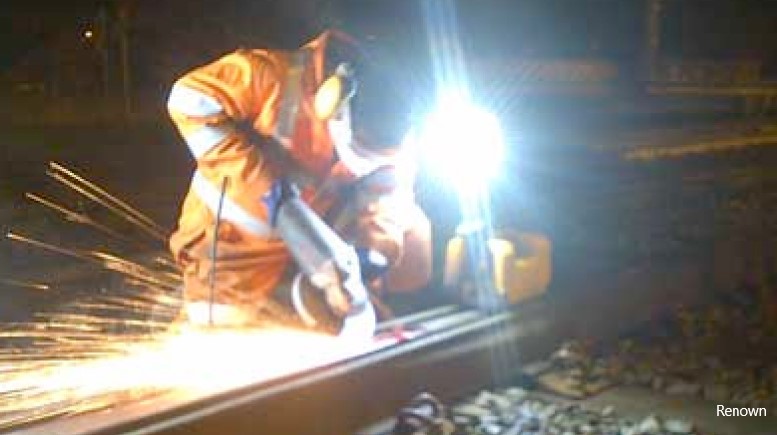
For the first time, railway regulator the Office of Rail and Road (ORR) has prosecuted a firm for bad fatigue management that cost two workers their lives.
Nottingham Crown Court heard that Zac Payne, 20, and Michael Morris, 48, died on 19 June 2013 when Payne fell asleep at the wheel of his work van while driving home Doncaster after the two men had worked a night shift in Stevenage. The van crashed into another parked van, killing both men.
Other factors were involved. Zac Payne had, in fact, left Doncaster at 04:30 the previous day and driven to Alnmouth, Northumberland, where he arrived at 07:30 to carry out work on the railway. The expected work did not take place, so, after waiting until midday, he started the drive back to the Doncaster depot, arriving at 15:00.
He was then asked to take on an overnight railway welding job in Stevenage and, in company with Michael Morris, he set off from the depot at 19:18, arriving at the site at 21:47.
This time the welding job took place, so the two men commenced welding at 12:15 and worked through until 03:40 the following morning. They left the site shortly afterwards and the crash occurred at around 05:30 as Mr Payne was driving back to Doncaster.
The ORR told the court that Mr Payne, who like his colleague was employed on a zero-hours contract, was suffering the effects of fatigue and may have fallen asleep at the wheel or experienced ‘microsleeps,’ which hugely increased the risk of a traffic accident.
As further background, the court was told that Network Rail had asked Renown Consultants, Zac Payne’s employer, for an additional welding team for the Stevenage job at 07:30 on 18 June and Renown had accepted the job before considering if it had sufficient well-rested employees and before speaking to Mr Payne. The company did not follow its own fatigue management procedures, nor did it comply with the working time limits for safety critical work, such as welding, which insist there should be a “minimum rest period of 12 hours between booking off from a turn of duty to booking on for the next”. It also did not conduct a sufficient and suitable risk assessment of Mr Payne’s fatigue.
In addition, while the company’s insurance policy stipulated only over 25s might drive their vehicles, 20-year-old Zac Payne was permitted to drive the van and the over-25 stipulation was “routinely flouted”.
The ORR considered that the company’s policies and procedures were particularly inadequate since employees were on zero hours contracts. This created an obvious incentive for employees to volunteer for work when they were too tired as they were only paid for the shifts they worked.
Another factor was that trainee welders, such as Zac Payne, were reliant on their employer for securing the experience they needed to qualify as welders, which further discouraged them for refusing shifts.

Ian Prosser, Chief Inspector of Railways, said: “The rail industry relies on a huge workforce of skilled manual staff, often working at night and on shifts. Fatigue is a real and known risk which reduces alertness and affects performance. Today’s tragic case shows the fatal consequences that can occur when fatigue policies are disregarded.
“Safety comes first, and ORR will continue to monitor and take action where companies do not take sufficient care to ensure their workforce is not too tired to work.”
The industry has, of course, moved on in the seven years since this tragic accident. However, fatigue is still a problem and the ORR obviously feels that this case will send a message to other employers on the industry, particularly those who employ trainees and others on zero-hours contracts.
Sentence has yet to be passed.


Be the first to comment